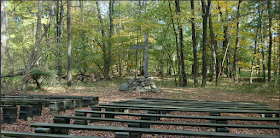 |
| Seidman Cancer Center Chagrin Highlands |
June 29, 2021
Tuesday, mid-day, Joyce drove me up to Seidman (just off Chagrin Blvd. & I-271), where I had my quarterly chat with my oncologist—and also got my two quarterly injections.
Anti-Covid protocols were still in place there: masks, temp and questions at the entrance. (We passed!). And then, three hours later we emerged.
Most of that time was waiting—to see the oncologist—to get my shots—to schedule next time. To think and worry (you know).
My cancer numbers remain good—though as I've said here numerous times, tis all temporary. This current major med I'm on (Xtandi) is an effective testosterone-killer (the food of prostate cancer), and, for the nonce, is winning the battle. My PSA remains undetectable.
That's good.
But my options are running out. So once Xtandi quits working (as it will), we're not sure what we're going to do next.
There is a new treatment for guys like me, a treatment I read about in the New York Times last week, but it's not yet FDA-approved, and until it is, it's useless for me.
I really like my oncologist. We talk a lot, speculate, even laugh a bit. And Joyce is full of questions, which he answers quickly and—sometimes—painfully.
Oh, I was in a wheelchair at Seidman. Even a walker, which I use on other, shorter excursions, is not quite good enough for me for a long time. My fragile balance just does not care about it, and I will fall if I use it for too long a period.
After the consultation and discussion with the oncologist, it was downstairs to the Poke Department, where a kind young nurse stabbed me twice: once in the rear (Trelstar, another testosterone inhibitor) and in the arm (Xgeva, which increases bone strength).
And then, at last, we were rolling out of there.
As usual at Seidman (during my waiting time) I noticed the many other patients who were there, patients who, as I’ve observed before, are a perfect spectrum of human beings: race, gender, age. Cancer doesn’t care much about any of that. If you’re human, the disease is interested in you and will consult your genes to see if it has a way into your system.
I try to talk with other waiting people—without intruding—and those other people are invariably grateful for the talk and encouragement (as I am)—for the good-luck wishes as we head back to the examination and/or treatment rooms.
Anyway, I don’t have to think about it for another three months, when, once again, I’ll head off to the lab to get my bloodwork and worry feverishly until the results come back.
And Joyce, of course, holds me together in the meantime, reminding me every day of the wonders of life, of the miracle of love.










